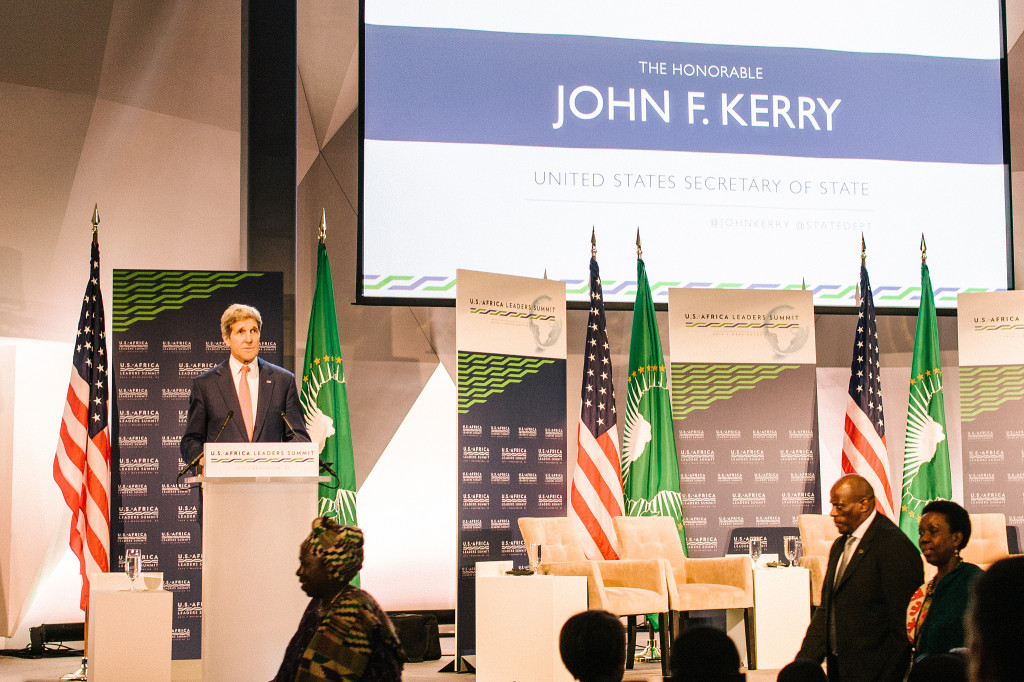Cross-post from CCAFS blog
Arame Tall, climate-service scientist working with the CGIAR Research Program on Climate Change, Agriculture and Food Security (CCAFS) and located at the International Food Policy Research Institute (IFPRI), is here providing a report back from a recently held US-Africa Leaders’ Summit, and a special high-level session entitled “Resilience and Food Security in a Changing Climate” at the National Academy of Sciences in Washington, D.C.

The session convened top US and African leaders to discuss challenges in building climate change resilience and ensuring food security – and craft innovative solutions going forward. Representatives from the CGIAR Research Program on Climate Change, Agriculture and Food Security (CCAFS) were invited to attend the session.
The session was well attended by high-level officials from both sides of the Atlantic. US Secretary of State, John Kerry, opened the event with remarks on ensuring that farmers are enabled to face the challenges of climate change. This was followed by panel discussions on “Commitment and Context” and “The Power of Partnerships”.
The Prime Minister of Ethiopia then took the floor, noting that Africa’s agricultural share in GDP has gone down to 4% in some countries. He argued that Climate Smart Agriculture (CSA) should be the basis of future programs in Africa.
When asked what the main challenges of Africa’s agricultural development in the face of a changing climate are, and the role of women in empowering such development, Madam Zuma, Chairperson of the African Union Commission, responded with a story. When she arrived in Malabo, where the Africa Agriculture Declaration was held in June 2014, she spoke with local women farmers. They told her that they wanted the harrowing image of the African woman with a baby on her back and a handheld hoe to be an image of the past. They wanted that handheld hoe to be a relic of museums. In addition, they demanded three things: access to modern implements to improve productivity, access to more land, and access to capital and finance.
f African women were paid for their hard work in agriculture, they would be billionaires by now.
– Madam Zuma, Chairperson, African Union Commission.
Read the rest of this story on the CGIAR Research Program on Climate Change, Agriculture and Food Security (CCAFS) blog.
